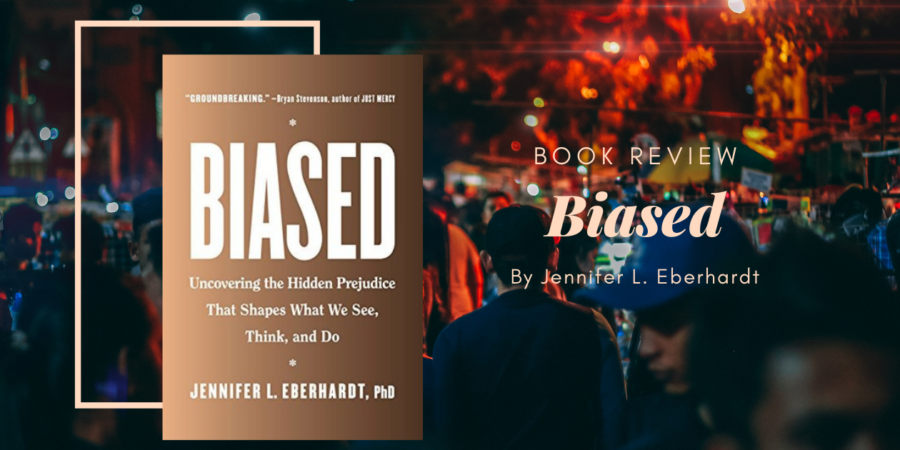One of the things I try to be aware of is bias. It was something taught in school (always look at the bias for various news sources to see how they would want things to appear) and it became something that stuck. So when I heard about Biased, a book on implicit racial bias, I knew that I had to read it.
Biased is a hard book to read because it deals with the difficult topic of race. Through ten chapters, Jennifer Eberhardt takes us through how and why we see people with biased eyes (even if we are not intentionally trying to do so) and how we might overcome this. Basically, it’s human nature for us to categorise things and people that we don’t often see are often lumped together in a group, while we’re able to differentiate between members of our own group. While this may be natural, seeing people this way is often harmful, as Eberhardt convincingly argues as she uses data and personal examples to show how this implicit bias destroys trust between various communities (such as African Americans and the police), leading to disastrous situations.
Despite the fact that race is an extremely charged topic, especially in America, Eberhardt manages to stay fair and balanced to both communities in her book. She shows the pain and fear that African Americans go through when they’re stopped by the police, but also talks about how her interactions with the police has shown her that they feel that the police are the only ones who care in a hostile community (when to that community, they are staying silent for their own protection). The data, in fact, can be used by both sides, as she writes that “the same disparities that community leaders view as proof of racial profiling can be cited by police officers as proof of who is most likely to commit crimes.”
Personally, I hope that Biased is just the start of her published works on implicit bias. This book focuses on America, and on the relationship between African Americans and Caucasians in particular. That’s a huge and weighty topic, but as someone from outside America, I’d be interested in exploring how implicit bias shows up in different parts of the world. For example, she mentions in the book that the Irish have managed to assimilate into society as “white” people, and in the latter half of the book, she mentions increasing anti-semitism as stripping Jewish people of their “whiteness”. But there isn’t much discussion into the shibboleths used to distinguish these groups of people from other Caucasian people (to my un-American eye, I would not be able to tell if someone was Jewish or Irish or Anglo-Saxon just by looking at them) or discussions about the negative associations that people have with these groups, the way she talks about how African American skin tones and names are unfairly associated with aggression and other negative traits. In fact, if a next book could go into different countries where Caucasians are not the majority and look at implicit bias there, I think it would really help in getting a more generalised view of how implicit bias works and manifests in different cultures.
That said, everything in the previous paragraph is just my wish for future books. As it stands, Biased is an amazing book that manages to deal with the tough topic of race and implicit bias (no one likes to hear that they may be a racist, after all) with great sensitivity while using data. If you’re interested in racial tensions in America, this is a book that you’ll want to read.

I will have to pick this one up. It sounds well-balanced and eye-opening. It’s an interesting topic, and I am a true believer that everyone has biases, whether we know/acknowledge them or not. Even as an American, I have to say I don’t know that I could tell the difference between a Jewish person, an Anglo-Saxon or Irish person just by looking at them. Maybe if they were wearing certain cultural attire, perhaps. I wasn’t familiar with the term shibboleths, and had to look it up. I like your idea of the author needing to branch out some in future books (hopefully) to look a biases in other countries. And even different demographics.
It is definitely worth a read! I didn’t think biases were so ingrained in us, and it’s definitely going to make me more aware of how I see others and how I can be more objective.